Local Legend: Paddy O'Brien - Best in the Game
Sue Fea © the Southland App
21 May 2025, 10:36 PM
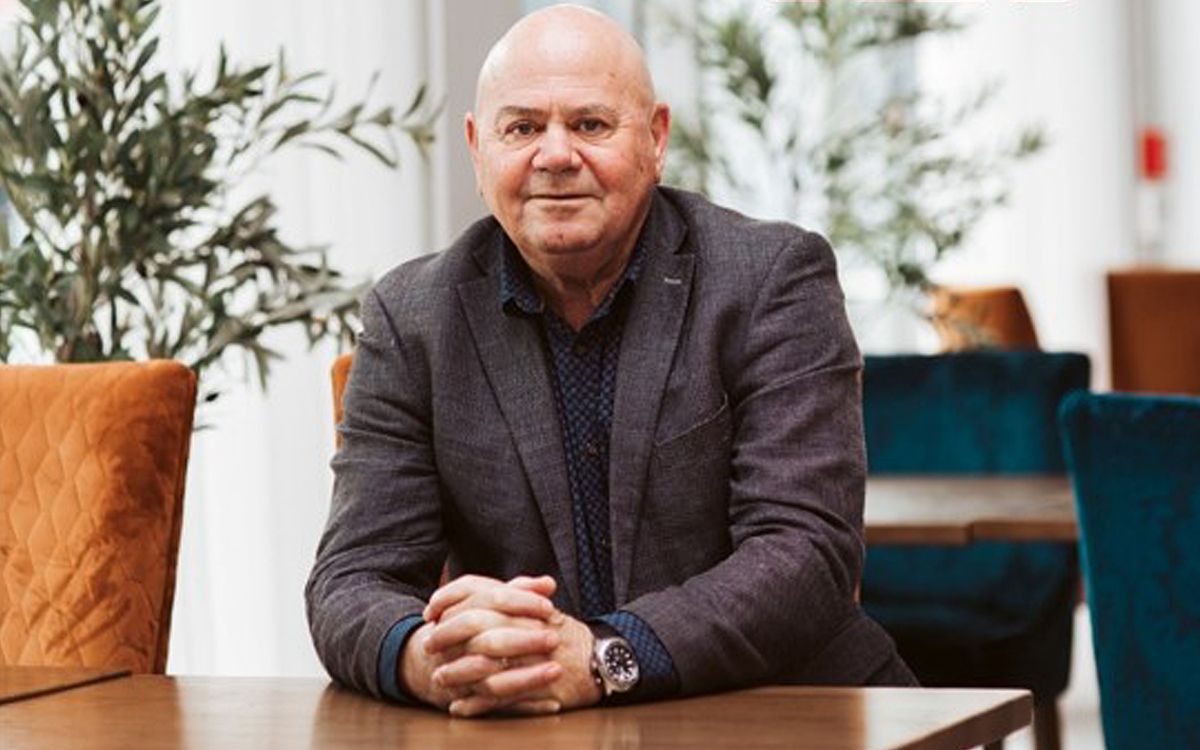 Paddy O'Brien. Photo: ILT/Supplied
Paddy O'Brien. Photo: ILT/SuppliedHe may have never donned the All Black jersey but his white referee’s one reigned supreme on the field. Southlander Paddy O’Brien is renowned internationally as New Zealand’s greatest rugby referee - a rugby icon, despite having never scored a try or kicked a penalty for his country.
Highly respected in the game the world over, Paddy reached the pinnacle of international rugby, selected to referee some of the world’s top test clashes, his calls seldom questioned.
Appointed the world’s first professional rugby referee with the introduction of Super Rugby in 1996, Paddy, now 65, retired from the field in 2005.
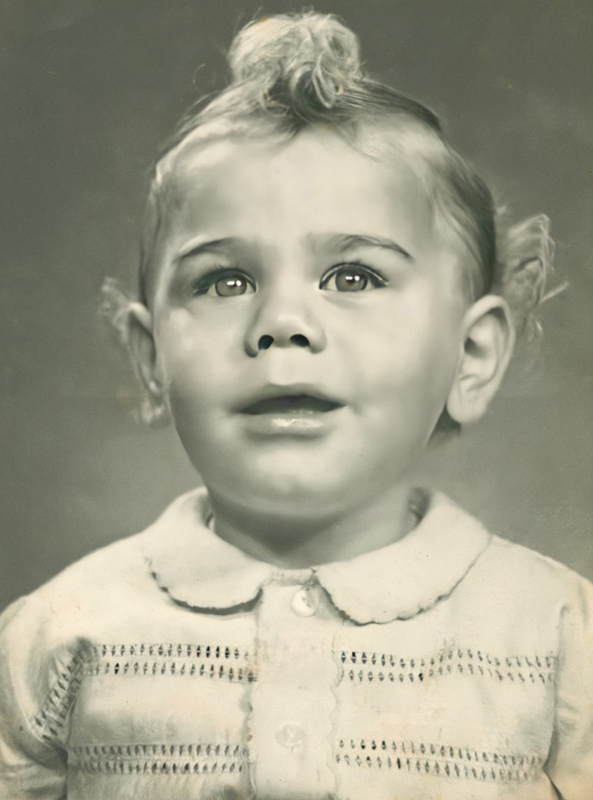
A young Paddy O'Brien. Photo: Supplied
“I was doing provincial amateur games and then the game went professional,” he says.
“The top players got contracted to Super Rugby and Colin Hawke and I became the first professional referees in the world,” Paddy says.
“We’ve set the blueprint for professional refereeing ever since.”
He refereed the world’s first ever professional match - the opening Super Rugby game between the Blues and the Hurricanes in 1996 in Palmerston North.
“The fact we made history that day, that was big for me. It’s a milestone that can never be taken away from you.”
In 10 years, he refereed at two World Cups (1999 and 2003), 38 international test matches and 218 first class games.
Until last year he still held the NZ record.
“I loved it. Every moment, good and bad. It’s all part of the show,” he says.
While it was high pressure stuff, Paddy never let that get in the way.
“I’d be standing out in the middle of Twickenham in front of a crowd of 75,000 and have to pinch myself and ask: ‘How did a little boy from Makarewa get here?’ Then you’d go out there and referee.”
That ‘little boy’ grew up in a strong sporting community, the middle child of nine, all fiercely competitive.
Paddy excelled at athletics, harriers, tennis, squash and rugby, eventually playing for Southland Bs and Senior club rugby.
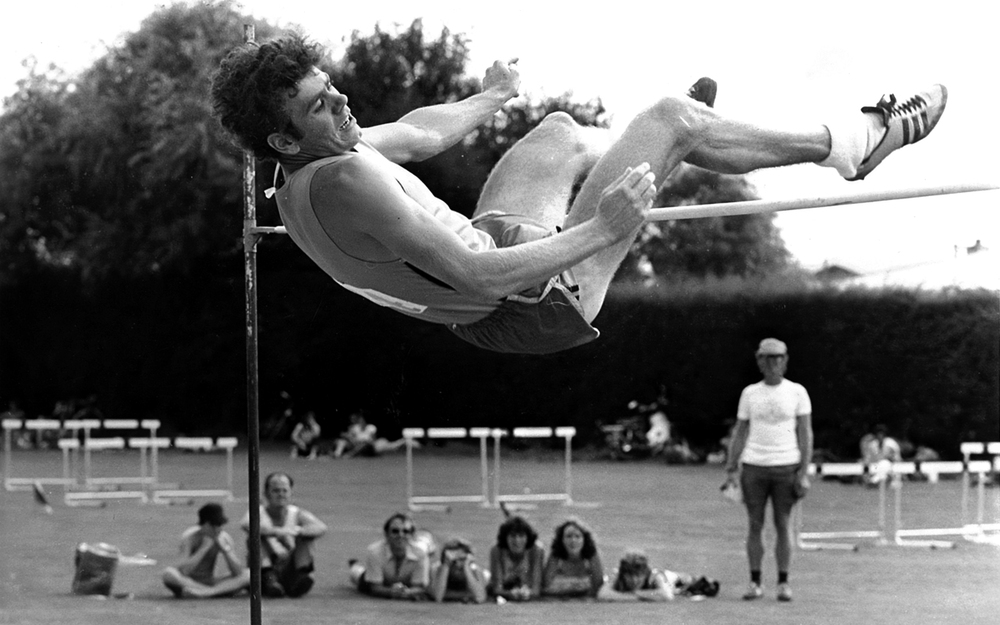
Photo: Supplied
He represented Southland in age-group tennis and squash and still held the Southland high jump record – 2.04m – the first New Zealander to jump 2m off grass, until 10 years ago.
“Our American Marist College teacher, Doug Wray, taught us the Fosbury flop,” Paddy recalls.
“My cousin broke the record and me after him.”
A trip to Hawera to compete in the NZ Age Grade Track and Field Championships, where he placed third, meant hard work to get there.
It was Paddy’s first trip away at 16.
“If we wanted a new tennis racquet, we did a paper run or worked at the tulip farm. We weren’t affluent.”
No win tasted sweeter than beating the kids with the flash tennis racquets using his old one though.
School wasn’t happening so Paddy worked as a clerk at Colyer Watson Hide factory until his mate said he was joining the Police.
Paddy did too, unfortunately sent home ill after a month from his first recruit training, resuming at Trentham in 1979.
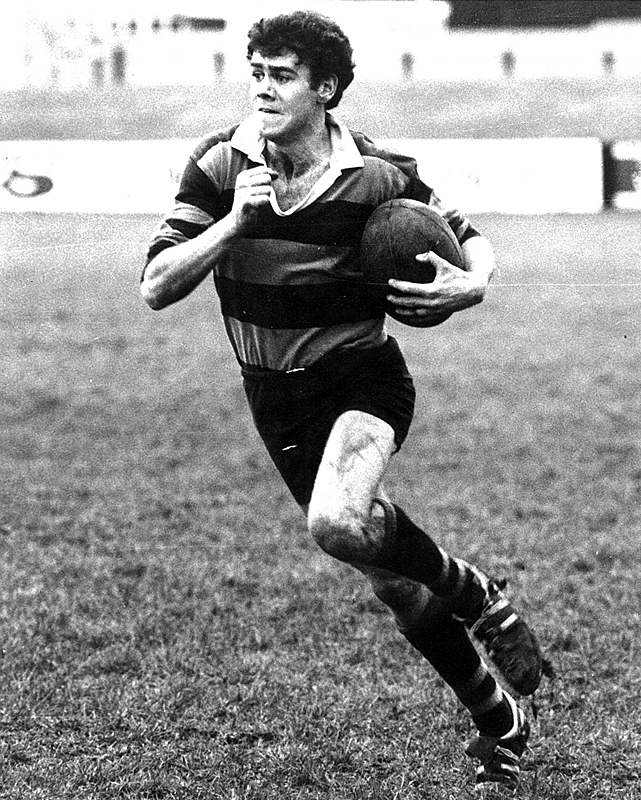
Photo: Supplied
Two years later he was a plain clothes cop at the Christchurch test during the controversial 1981 Springbok tour of NZ.
“It was pretty unreal. My older sister was protesting in the front row, my older brother was yelling abuse at the protestors and there was me in the middle feeding information back to the Police,” he says.
“If proof was ever needed that the tour split families then that was it.”
At the height of his rugby career Paddy was rated among the top international rugby referees in the world, winning NZ Referee of the Year seven times.
His 1999 World Cup pool game between France and Fiji was a real setback.
“I refereed poorly and was off the international scene for 12 months.”
He’s proud he had the resilience to overcome that, and referee the third and deciding international between the British and Irish Lions and Australia in 2001, and appointed to the 2003 World Cup semi-final between France and England.
After retiring in 2005, he was World Rugby Referee manager for eight years, appointed Sevens Referee manager in 2012 – a position he still holds, managing the World’s Sevens referees and support staff on the World Series.
“I just love being involved with these outstanding young men and women.”
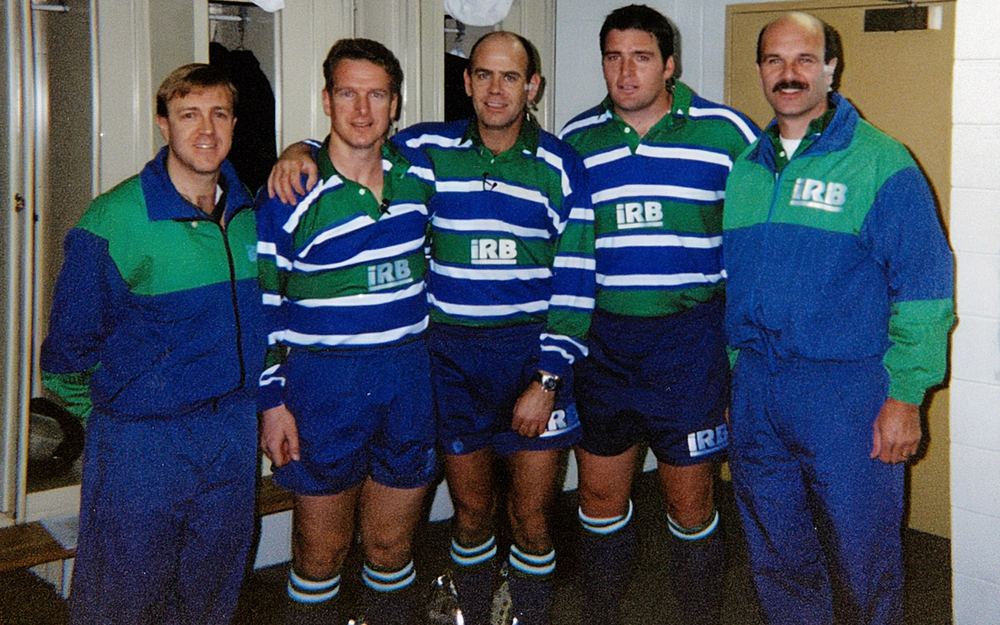
Photo: Supplied
Paddy is clearly equally as passionate about his 17 years in the NZ Police, appointed patron to Wing 370 at the Royal NZ Police College last year, which he really enjoys.
His six years in the Invercargill CIB were the most challenging, but nothing equalled the pain of losing close younger brother Danny to suicide, aged just 25.
“I was working at the time. I can count every minute of that day,” Paddy says.
“That was a defining part of my life. It helped me deal with stress and pressure,” he says.
“You realise nothing’s really that bad in life. Take some time out and things will be better the next day.”
Just 19 when recruited for the Police, Paddy says he was far too young and immature.
“I had to learn fast. It really made me grow up. Everything I do now reflects on my time with the Police though – management and dealing with trauma.”
On the lighter side the “old school initiations” were fun.
“One of the cops would lie under a blanket at the mortuary with a label on their bare toe, then suddenly sit up to the horror of the new recruits,” Paddy chuckles.
Newbies could also be called at night to Coldstream Pool, where Police had night-time access for training, only to find ‘someone’ – another officer playing pranks, lying in the pool.
“It was terrible, and you wouldn’t get away with it today, but all in good fun,” he says.
“I just loved being in the Police. I have nothing but praise for them, the great camaraderie. Everybody is so loyal to each other."
“It was different back then. You could help those with the right attitude, rather than lock them up, and there was total respect from the public.”
By 1995 though he needed out.
“The work was starting to affect me.”
He worked in sports administration for a year before landing his professional refereeing role.
Before long he’d been catapulted from one of the top five Southland, then top five NZ, referees straight “into people’s lounges” with Super Rugby and its huge TV audiences and match crowds.
“Everyone knew you. It was a great life, and I loved every minute of it.”
Southlanders were loyal and there was no social media back then.
Upon retiring Paddy was awarded the ONZM – one of the first referees. “That was a huge honour.”
World Rugby referee manager was one of his most stressful roles, managing when NZ lost the World Cup quarter final to France.
In 2012 rugby was accepted into the 2016 Olympics and Paddy became Sevens manager.
At one stage he moved the family to Dublin for 18 months for his World Rugby work.
He still travels the world with the Sevens role and has just become citing manager after the sad loss of his colleague last year.
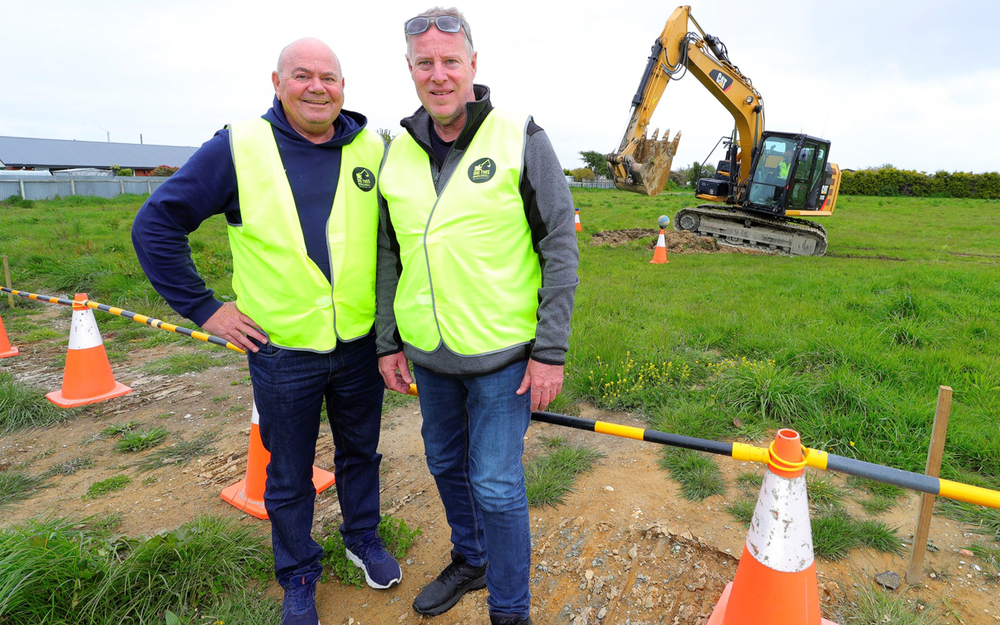
Paddy O'Brien (left) on-site at Invercargill's new Hawthorndale Care Village. Photo: Supplied
As if that’s not busy enough, Paddy’s also been on the ILT board for nine years, chairman for the last three, and he’s devoted to his volunteer work on the Board at Calvary Resthome and the new Hawthorndale Care Village – “an absolute legacy for Southland”.
“Mum and Dad were in Calvary and just loved it. I promised Mum I’d go on the board.”
Paddy’s in demand as an after dinner-motivational speaker and his life story, ‘Whistle While You Work’, written by Bob Howitt in 2004, has been a best-selling book, but there’s one thing Paddy would still like to improve on.
“I’m the worst golfer in the Riverton club, but I love it.”